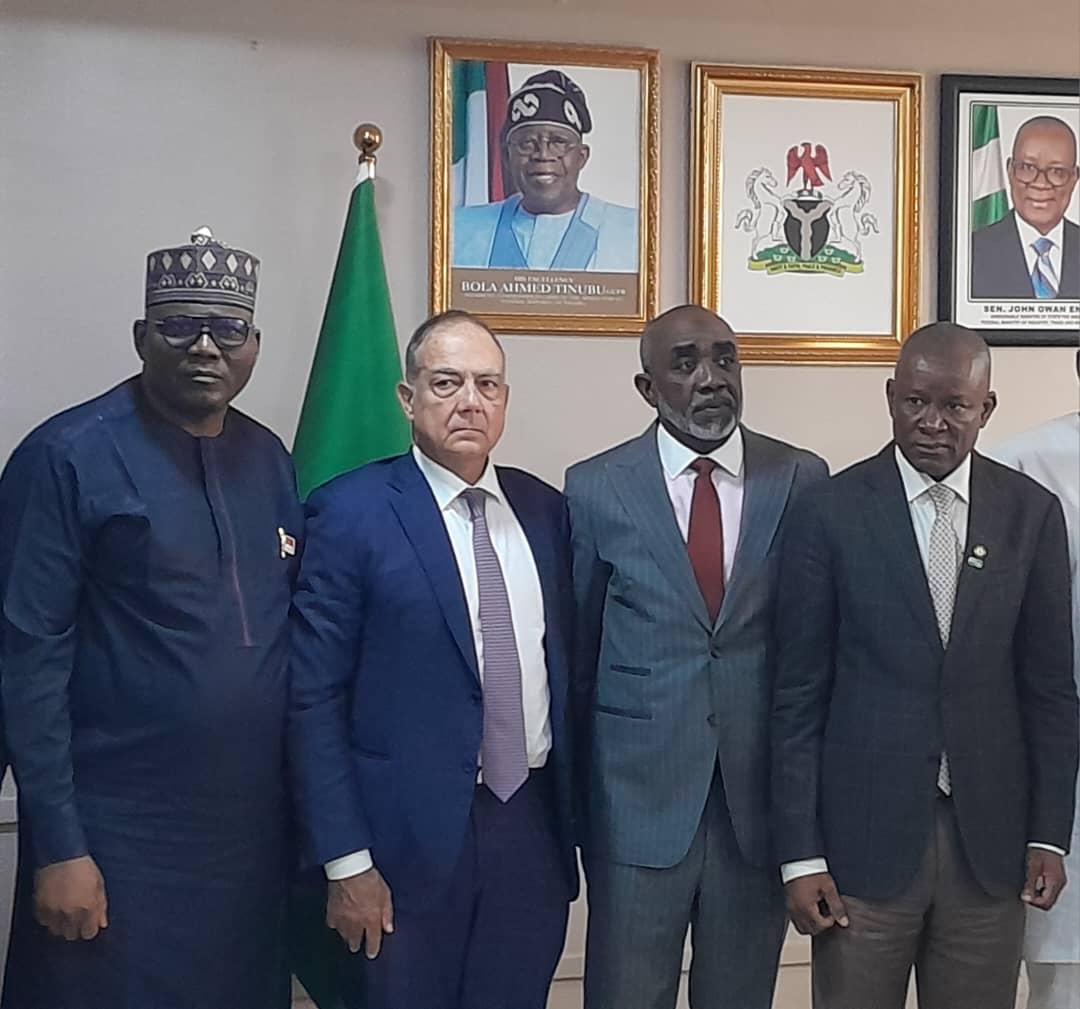Nigeria committed to national sugar master plan objectives – FG
By Lucy Ogalue
The Minister of State for Industry, Sen. John Enoh, says Nigeria’s sugar industry must meet its domestic production target in line with the objectives of the National Sugar Master Plan (NSMP).
Enoh made this known during a high-level stakeholders’ meeting on Wednesday in Abuja.
The National Sugar Master Plan, introduced in 2012 and currently in its second phase, aims at achieving self-sufficiency in sugar production, creating jobs, and conserving foreign exchange
Enoh reaffirmed the Federal Government’s commitment to the full implementation of the master plan as the guiding framework for the sugar industry’s operations.
He said the core goals of the NSMP remained the significant ramp-up of local raw sugar production and a corresponding reduction in the country’s dependence on sugar imports.
“The ministry gives a firm commitment that the National Sugar Master Plan and its guiding rules are sacrosanct.
“Quota allocations to industry participants will be strictly based on their actual performance under the plan’s Backward Integration Programme (BIP), and no other consideration will apply,” he said.
The minister noted that imports of refined sugar by any participating company would count against their annual quota allocation, warning that infractions would not be tolerated.
According to Enoh, efforts by the National Sugar Development Council to tie import allocations to performance in 2024 marked a turning point.
He disclosed that some players still violated the guidelines.
“To address this, I will request the Minister of Finance and Coordinating Minister of the Economy, to direct the Nigeria Customs Service and the Federal Inland Revenue Service to recover all outstanding duties and levies on sugar imports,” he said.
Enoh also called for intensified investment in backward integration and skills development, adding that a more disciplined focus was required to deliver the master plan’s objectives.
He disclosed that the government would embark on nationwide visits to BIP project sites to verify performance claims using a standardised information-gathering template.
The minister stressed the importance of transparency, urging the creation of a public dashboard to track sectoral progress, encourage compliance, and enhance credibility among stakeholders.
“We must strengthen our monitoring and accountability systems. Just like what was done in the cement industry, the sugar sector can also become a success story if we remain consistent and firm,” he said.
The Executive Secretary of the National Sugar Development Council (NSDC), Mr kamar Bakrin, expressed the council’s commitment toward addressing the various challenges encountered by operators in the sector.
Bakrin reiterated the importance for stakeholders to act decisively to reverse years of poor performance of the sugar industry in the country.
He acknowledged that operators had consistently flagged some issues as factors hampering the execution of their BIP projects.
He listed some of the challenges to include loopholes in the Free Trade Zone (FTZ) regime, delays in clearing equipment at ports, sugar smuggling, and resistance from host communities.
He noted that all of these issues had either been resolved or were being actively addressed through government interventions and policy reforms.
“With the ongoing amendment of the NSDC Act and the recently passed Fiscal Reforms Act, the loopholes in the FTZ regime are being firmly closed,” he said.
He added that delays at ports were also being tackled through regular NSDC engagement with the Nigeria Customs Service, while the Council was working with the Department of State Services to curb sugar smuggling.
On the issue of community unrest, the NSDC boss explained that grievances in key locations such as Noman in Adamawa State had been fully resolved.
“There is currently no BIP project where host community opposition has restricted access to significant portions of land,” he said.
Bakrin stressed, however, that the time for excuses was over, as the sector could no longer afford further delays or underperformance.
“We believe that operators must immediately halt the decline in their current output, especially in agronomic and factory practices, which remain below global standards,” he said.
He also called on industry players to urgently scale up expansion of their brownfield BIP operations, adding that the sector was already a decade behind the timelines initially set by the NSMP.
“We have all the data. While we will respect confidentiality on individual cases, the fact remains that there must be an aggressive approach to project expansion if Nigeria is to meet its sugar self-sufficiency targets,” he said.
In his remarks, the Chairman of Golden Sugar, Mr John Coumantaros, admitted the industry’s failings and backed the minister’s reform stance.
“The sector has underperformed. Investments of four billion dollars is required to replace the 1.6 million tonnes of sugar Nigeria imports yearly.
“With strong enforcement and collaboration, the industry can deliver significant economic benefits including saving $800 million annually in foreign exchange and employing up to two million people directly and indirectly,” he said.
Coumantaros likened the situation to the cement sector’s successful turnaround under a similar backward integration policy.
“It took strong government enforcement and industry commitment to transform cement from an import-dependent sector to a self-sufficient one. The sugar industry can do the same,” he said.
He pledged the company’s readiness to expand its Sunti operations and invest in additional projects, provided government enforces policy and level playing field.
The Managing Director, BUA Foods, Mr Ayodele Abioye, expressed the commitment of the company to accelerate and drive the sector.
Abioye urged the government to take cues from other climes to help the sector thrive.
The meeting ended with commitments from both government and operators to convene quarterly reviews, reinvigorate monitoring mechanisms such as the Central Monitoring Committee and align public-private efforts toward measurable results.(NAN)
Edited by Chinyere Joel-Nwokeoma




